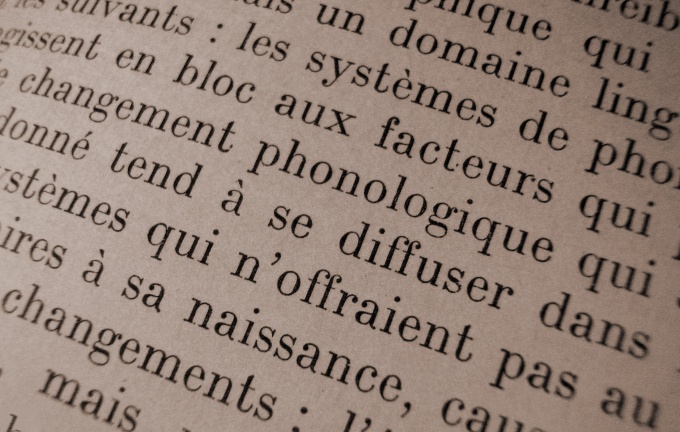Instruction
1
To read almost all words in the French language, there are clear rules, so in the wordsof French ryah you will rarely find a transcription. First of all, you need to understand that the emphasis of all the French wordsx falls on the last syllable. If at the end of the words you see the letters -s, -t, -d, -z, -x, -p, -g, and combinations of ps,ts, es, ds, then they won't hear. Also at the end of words when speaking are thrown out of ent and er. If the letter "s" on the end of words after a nasal consonant, it is also to be read will not be for example, blanc [Blanc] – white.
2
In addition, in contrast to the Russian language voiced consonants in French are always spoken loudly and clearly, without the stun. Vowels without accents do not fall out and no are reduced. If in the word there are two identical consonants, they are pronounced as one sound, for example, classe [Klas].
3
Special pronunciation rules in the French language have the letter "x", "C" and "g". At the beginning of the word between vowels "x" is read as [gz], for example inexorable [inestable]. If "x" is not in early words, it is pronounced as [ks], for example, externe [extern]. In ordinal numbers the "x" is pronounced as [z], for example, sixieme [sysyem]. The letter "C" before the vowels i, e, y is pronounced as [s], for example, certificat [certificate]. In all other cases, this letter will be read as [k], for example, democratie [demokrasi]. The letter "g" is pronounced as [?], if she stands in front of vowels i, e, y, for example, the general [General]. In other cases, this letter gives the sound [g], for example, garage [garage].
4
In French, there is a huge number of letter combinations of vowels and consonants. The combination "ch" is pronounced as [?], for example, the chance [the chance]. The combination "ph" is pronounced as [ f ], for example, the photo [photo]. The combination "qu" is pronounced as [k], for example, the banquet [of the Banquet].The combination of "il" and "ille" after a vowel give the sound of "th", and after a consonant are pronounced as "iy", for example, famille [famille] or bouillon [bouillon].Combinations of vowels with nasal consonants "n" and "m" gives nasal sounds. The letter "t" in wordsof the type national is pronounced as [s], for example, the national [national] or initiative [initiative].





